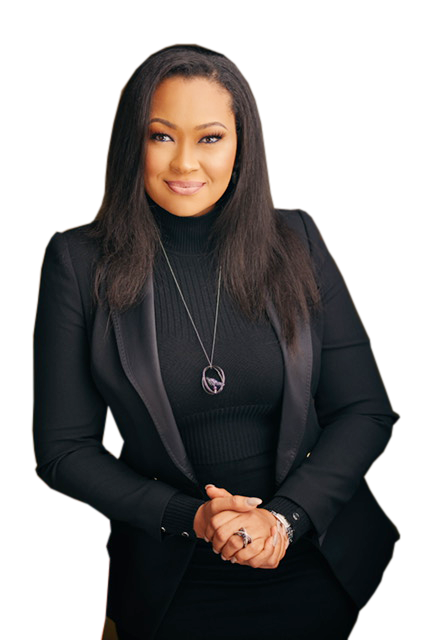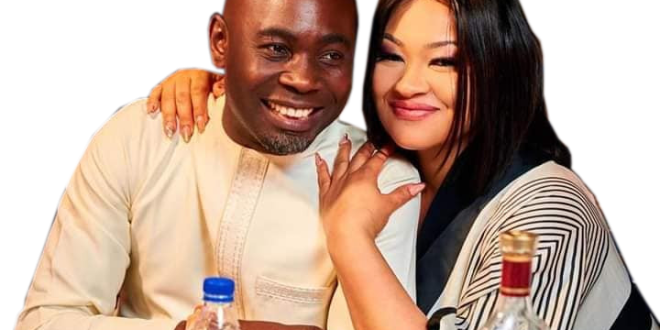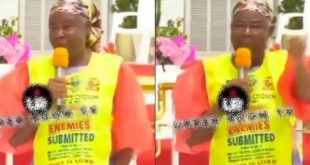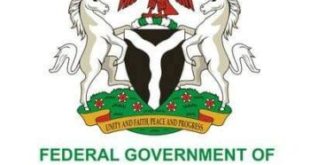Senator Natasha Akpoti-Uduaghan representing Kogi Central under the platform of the Peoples Democratic Party speaks with Seun Okinbaloye on Channels TV Politics Today programme where she talked about her life as a Senator and wife, Gold Reserve Bill, a bill for an act to make provision for Nigeria’s gold reserve industry, the Old New National Anthem, among other issues. OLUMIDE OLUSEGUN brings excerpts.
How has it been being a Senator of the Federal Republic?
It’s been quite interesting. It was everything I expected. I have been busy legislating, overseeing, and representing my people. And I have also been able to strike a balance with my home. I still cook. I still do everything. So striking a balance, that’s what matters more to me. But I’m glad that my people are happy so far. And I have been able to lend ropes quickly in the Senate. I have had my debate for my very first bill. It’s interesting.
How are you also managing local politics in Kogi?
I visit home often. Trying to strengthen the structure and ensuring that there are no aggrieved parties. Amending fences. Mind you, my election was one way whereby people across all political platforms voted for me. I am so grateful to my people for that. So I have been able to manage that. But most importantly, I focused on delivering the promises that I had captured in my manifesto. Which is to project their very concerns about the health care situation, educational reforms, and all of that. And I have done that pretty much well.
So it is less of political fights now and battle?
I am all about working now. There’s time for politicking. There’s time for the elections. And now it’s time to work. And I find that fellow senators in the National Assembly, they’re quite embracing across all parties. Interesting.
There are just a few of you who are female senators.
Just four of us. The representation of women is dwindling. Are you worried about that, though?
I am very worried. And as a matter of fact, I have had quite several meetings with international organisations and embassies of certain countries that are concerned and are willing to offer support. Especially when we present the gender bill, which I am working closely with the distinguished Senator Ireti Kingibe and the other two female senators. Certain conversations are going on around that. And we hope that by the time we present it, it will have greater support, especially from our male folks. The President himself will assent to that so we can have a greater representation. Because four, as several representatives of people of over 100 million, I think that’s quite a point ratio.
You have got some very good representation, too. Very strong women. You, Senator Kingibe, and a former deputy governor in Lagos there. And kudos to you. I mean, you might be drowning when it’s only baritone voices that you hear across the room.
We have learned to raise our voices whenever we are not heard. And we have had, the Senate President always says, Senator Natasha, we are all men here, ok? So speak like a man. There is no softening the ground for you. You decided to be here, so you have to forge your head.
How tough is that, though, in a male-dominated arena?
For myself, I like to focus on the context of what I am speaking about. And I don’t take into consideration that I am a woman. So I don’t present femininity at work. I present competence. I am a woman. I am a senator. I am duly elected like everyone here. And I stood my ground.
And those who saw you fought your way politically in Kogi would said you fought like a man, too.
They say I fought tougher than a man.
Some of the females in the Senate are trying to buy gold but you are digging for gold. And it seems that you are almost there. Your bill has passed the second reading. Why are you interested in gold?
The idea to sponsor the gold bill came in February at the Banking Committee, of which I am a member. We were screening the CBN Monetary Policy Committee. And there sat the DGSEC, which is Lamido Yuguda. And I asked him a question. If you become a part of the CBN Monetary Policy Committee, how do you intend to boost Nigeria’s gold reserve? And do you mind letting us know exactly what the status of the gold reserve is? And his response shocked me, as it did shock the other members of the committee. He said that indeed the CBN did have a gold reserve, but the last time the CBN bought a gold bar was in the 1960s. And I thought, wait. Since the 1960s? That means that the last time the Nigerian Central Bank took stock of a gold bar in its reserve was in the 1960s. And then that now led me to begin to research. I remember when we were in primary school, we all had this class, where we saw the pyramids, groundnut pyramids up north, the city cotton. I remember gold in Ilesa. And I was like, if we had gold all this while, then why don’t we have renowned gold refineries, gold processing zones, and then having them bullion, and Nigeria’s share being reserved in the central bank? I mean, that will bring about economic stability. Apart from the job generation, it will bring about foreign direct investment into projects. It will bring a lot of cushion, especially right now that our currency is weakening. So I thought, we can get our gold exploited, explored, and marketed to the very advantage of Nigerians. And, of course, we can get our CBN, and begin to yearly announce how much we have in our gold reserves. And we can begin to trade with them. And we have seen countries that enter into foreign investments by trading their gold. So I thought about that, and I spoke to members of the committee. I began to network. I was also told that it was such a dangerous bill to pass, considering certain interests in illegal mining. And I was also made aware that there could be some international forces that would frown at that because, wherever there is chaos and uncertainty in Nigeria, there are certain people that benefit from that. So I took time. I spoke to my husband because I had to let him know that, there were some murky waters that I would get to swim in. But I made him understand the importance, and he told me, okay, go ahead.
So your husband was also an inspiration for this, wasn’t he?
Yes. And I am saying this because as a woman, you know, we talk about women in politics. It is very important to know that in everything I do, I take into cognizance the dangers that my family could be exposed to. And so the first thing I did was to let my husband know that this was what I was going to do. And once I gets okay, I also let the Senate president and a few other senators around, and I began to network, to lobby, to develop. It took me February, March, April, May, and June, about four months to develop a 40-page draft of the bill. So I figured out that there was going to be a need for the Gold Reserve Authority or the Gold Corporation, as it may be called. We would need to have the artisanal miners taken into consideration because as you know right now a lot of insecurity and killings that take place in these gold-saddled communities, are likely to cause.

We have a gold potential of over US$40 billion.
It’s even much more than that. If you multiply 300 million ounces as I am going to use ounces as a measurement scale, 300 million ounces by the rate of gold per ounce today, which is about US$2,300. We are talking about seven hundred billion dollars worth of gold.
And it’s been said that this year alone, almost US$1.5 billion worth of gold has gone into private hands in Nigeria. That means that the nation has been shortchanged but would this bill allow Nigeria to benefit from gold exploitation and marketing?
Definitely. Once this legislative framework is established, and that will give birth to certain gold directorates and the gold authority, which will be situated under the Ministry of Solid Minerals, all of these regulations, we are going to curb these excesses of the illegal miners. And mind you, the projections you just gave now are just minimal because you would never really have an estimate of the true value of gold as it’s been exported out.
How much of the ill in the industry have you found out?
First I will say this, is that lives that have been lost because there are no mining regulations, about a few weeks ago, 30 miners were trapped in Niger state. I think the greatest loss is the lives that have been killed or the people that have been buried in submerged mines. That happens because we have not set standards as to mine. So these illegal miners, go into these holes and keep digging, and they paid peanuts for that. They don’t even understand, these communities that have gold don’t even understand the true value of what they have. Because some of our communities and states are so blessed that at every rainfall we see gold, the ground shines. And I will say the greatest loss that our country encounters is with regards to the loss of lives because of the encouragement of these illegal miners. And the second one to talk about is the various community clashes. We have seen several communities displaced. People systematically create chaos in communities that are blessed with minerals. And all of this happens because there are no regulations. And the monetary part of it we talk about. It’s the currency stability. Every time, our Naira almost got to $2,000 to $1. Now imagine if we had, over time, developed our gold reserve by deploying the very best international practices in gold. Do you know what would have been? We’re not just relying alone or relying on oil. Oil, to the grace of God, has sustained Nigeria. But if the country means to diversify, then this is the best way to do it in real terms. We all know all over the world, that if you go to gold.org, while crude oil, where the barrel of crude might go down or fall sometimes below $50 per barrel, gold never does. It’s the most stable, tangible asset any country can peg its economy by. And that is what I want for our country. Not only are we going to generate jobs, because we are going to set standards, but we are going to have directorates, we are going to have this refinery set up in strategic states, not just in Zamfara, Nasarawa, Ondo, Oyo State, in even Kogi State. We have gold in the western part of Kogi. And do you know something, Senu? By the time we have this framework set up, the minister is going to issue out strategic licenses, and exploration licenses to people. And then we begin to discover many more reserves that we never knew existed. You could be surprised that the future of our country’s economy lies in gold. And now that we are quite moving fast, I did the second reading. Now it is been sent to the Committee of Banking and Solid Minerals for a Public hearing, which we believe will meet after the holiday. So I think, I am really glad about the attention this bill has gotten from the Senate, and with National Assembly. And in no time, it should be a law. And believe me, I took time to put together what it would cost. I have seen some, saw questions, and people asking, that this could be another agency, ministry, and bureaucracy. No, it is not about that. Remember, some certain agencies or directories are self-funding on their own, like gold. You know, they are going to be taxed. For once, the country will be able to earn taxes because we will be able to define how much we are extracting, how much we are processing, how much we are selling off, and how much we are reserving. So, I made a budget of just about two billion. It is going to take just about two billion to set up this directory. And then it will start funding itself.
How will these states and the local community that have the gold will be able to benefit especially with the experience of the Niger Delta region?
As of today, gold falls under the exclusive list, just like oil, whereby it’s a sole product of the Federal Government. But I think in the course of this public hearing we are going to invite the states as stakeholders to participate in how they would want the legislation to be drafted. But in a bid to have buyer participation in the spirit of true federalism, it only makes sense that that gold could fall under the concurrent list, whereby both the federal and the state would have a right to decide the terms of its exploration and also benefit from the taxes that could be generated from that. Another advantage of this gold reserve, which I thought was the gold framework, is environmental protection. Just like many other areas where the minerals have been mined, if you look at a typical area where gold is mined, the environment is usually degraded. And the investors, should I say the illegal miners, care little or nothing, about how the community can farm or fend or the kind of water they drink. Mind you that for every area where gold is mined, a lot of water is being utilised. So that means a lot of water is been polluted. And imagine children drinking such water. Children and everyone drink water that is polluted. And these people usually suffer the greatest burn. So this regulation is such multifaceted that it takes care of every aspect, not just in terms of generating revenue for the government, but also thinking about better lives and quality of life for the environment and the communities that this mineral is being harnessed from.
Are you trying to gain any experience from other climes, like the United States from how they are faring and what they have experienced over the last few years?
I understudied for the past few months. I read a lot about the Indonesian mining sector and how in a few years, just about four years, the Indonesian government decided to put a structured framework around nickel and gold. They were able to generate over a 1,000% increase in income from this sector. So I did study that. I also looked at certain countries like Ghana which actually has so much more gold than Nigeria and how they have poorly behaved.
But how many countries still trade in gold these days?
It is a lot of countries right now. India, Brazil, Russia, and many others. They are developing. Some don’t just trade, but they just develop their reserve as a cushion, an economic cushion. It was in the news about six or seven days ago that India had requested the return of its gold from the UK reserve. And there have been debates as to why is India calling that. But then they just said, no, they just want to have their gold reserve again.
So you see a lot of potential in that and you are hopeful that this will pass?
Of course, it will pass. A lot of countries are beginning to realise that paper currency, which fluctuates, and then as against something more, it’s a tangible asset. And so that’s why, even in America, the UK, France, Germany, countries that don’t even have gold are increasing their gold reserves. And you ask the question, where do they buy their gold from? Invariably, you can connect the dots. One country that has a lot of gold sells it illegally for close to nothing at a loss, and other countries that, even though they don’t trade in gold, are constantly developing and building their gold reserves for future sake.
Some controversial bills have passed through like the National Anthem. A lot of Nigerians are asking, is it a National Anthem that is our problem now? Why did you and your colleagues think that Nigeria needs a new National Anthem at this stage of our lives, Senator?
Here is what I would say. If you listen to the words of the National Anthem that have been the new National Anthem, I would say it was an older National Anthem.
The old new or the new old, whichever way?
The new old. If you listen to the words of the National Anthem, I think they resonate more with the spirit of building patriotism. And that does not mean that the old National Anthem, which tried to honour our hero’s past and the works of our youth in national building, is not in any way good. But I would just say that it was a unilateral decision and neither was it just one arm of government that decided to deploy that. It was a collective effort. And to those who are aggrieved, I would just say, read the lyrics in their true term. Words alone cannot build nationhood, but our actions will. So let us put aside the debate on whether this is the right time to change a National Anthem but let us project more of how we can collectively support Nigeria to be better. I am in PDP, but I have come to accept that President Tinubu from APC is the President of Nigeria till 2027. And every day I wake up thinking, how can I contribute my quota in that little space I find myself? How can I help my country grow? That is why I have refused to join a lot of quite controversial issues. But I’ve thought of cracking my mind and bringing about the gold bill, as many others that I am going to bring forth in the coming weeks and months, so I can bring about economic stability and help our country grow. And that’s what other Nigerians should do.
On the controversial anti-grazing bill that came onto the floor of the Senate some Nigerians think that how dare a lawmaker think that a cattle, a cow, should be seen at par as human. How did you receive it on the floor?
I think there was just some misconception in that. What distinguished Senator Aliero was trying to say was that the Nigerian constitutions allow the free movement of persons and businesses across the country. That means if you are an Igbo man or you are a Yoruba man from the south or east, you are free to establish your businesses or whichever it is in the northern part. And the whole argument is that herding, or cattle rearing, should be looked at as an economic concern. You understand, such that the interventions that the rice farmers, the cassava farmers, and the fishermen get, so also should be the same interventions that the herdsmen should get. And, due to climate change and many other unforeseen circumstances that have befallen us, therefore we should speak about grazing controlled, grazing spaces for these herdsmen so that we would not have cows walking the streets and destroying other people’s homes. However, let us talk about how we can identify or nurture herding as an economic concern. That caused me again to do a bit of research, and I looked at Argentina, Holland, and America. How are they able to develop their herding business? And I discovered that there are seeds. There are seeds for different kinds of grasses. So now if you have cows you are growing for milking, maybe to produce milk for butter, then you go for more of the ryegrass. If you want to have your cows fattened for beef, then you look more at the Bermuda grass, and these seeds are available. So I was just thinking, it would not be out of place that as we provide fertilizers, sometimes at a discounted rate to farmers, or sometimes even for free to farmers, and if we offer seedlings to other crops and other interventions for rice farmers, then it’s not out of place if the federal government can say, okay, we are going to import these seeds, these grass seeds that grow fast and grow very nutritious. For example, ryegrass has a protein of about 26%. Imagine grass having a protein of about 26%. So it wouldn’t be out of place if we begin to build the ecosystem around herding. To a lot, a large piece of land for these farmers in selected states and say, you know what? You are going to be in this confined space. You have your schools, you have your clinic facilities, you have an entire community for you, and we’re going to have these interventions, have this grass, grow them, and see that they help provide. Because of most of these herdsmen, the argument they make is that they love their cows. They are connected to their cows. They can’t watch their cows starve. It is all about food. These Fulani herdsmen don’t even like the fact that they have to walk away from their wives and children for months, nurturing these cows. And that causes conflict because when they stumble upon these farms, the corn farm, they then watch them eat. And that’s of course very wrong. But I am asking the Federal Government, if we can begin to look at herding as an economic concern and understudy America, Brazil, and Argentina, and see how, even Japan, actually massages these cows and that is premium price. So let us begin to see how can we grow our herding business to a point where we begin to have bottled milk. We begin to have butter. We begin to have a lot of, even baby milk. The cows that produce baby milk were injected with DNA from human beings. That will tell you how advanced, and how innovation and technology have been deployed in herding.
 National Telescope national telescope newspaper
National Telescope national telescope newspaper



